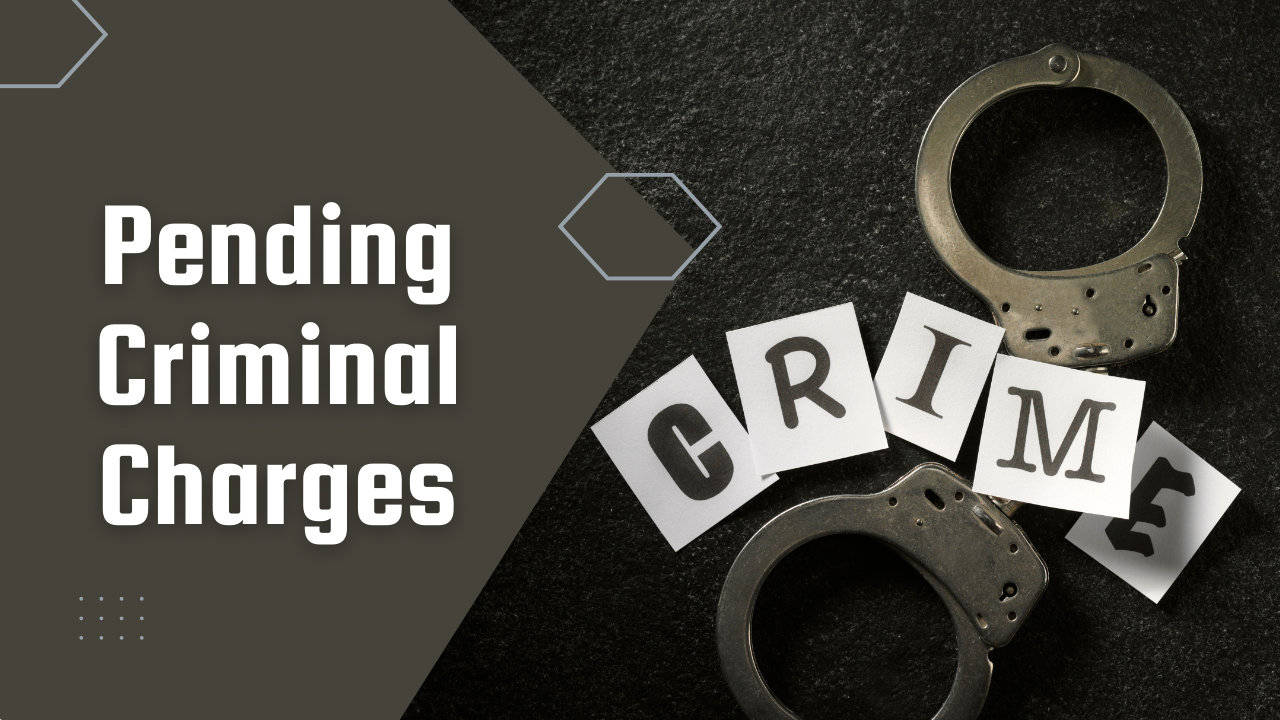Background investigations are a crucial step in the procedure. These canines are also used by voluntary organizations, employers, and landlords to screen applicants. But what occurs if there is an ongoing criminal case against you? We’ll explore if background checks reveal unpaid fees in this blog post. What does this signify to you, too?
Understanding Background Checks
What are Background Checks?
A background check verifies an individual’s identification, work status, educational background, and criminal history by looking into their past. They are frequently utilized for volunteer work, housing, and employment. Ensuring the integrity and safety of a community or organization is the aim.
Types of Background Checks
There are several types of background checks:
- Criminal background checks: These checks will reveal criminal history. This includes arrests, charges, and convictions.
- Employment background checks: These checks verify employment history, qualifications, and job-related criminal history.
- Tenant background checks: These checks assess credit history. Rental history and the criminal background of the potential customer.
- Others: Financial, educational, and driving history checks are also common.
What Are Pending Criminal Charges?
Definition
Criminal charges are pending on charges that were filed but have not yet been resolved in court. They indicate that a person has been charged with a crime. But it has not yet been decided.
Legal implications
By law, a person under trial is considered innocent until proven guilty, however, the existence of pending charges can affect the chances.
Do Pending Criminal Charges Show Up in Background Checks?
Criminal background check
Pending charges are generally found on a criminal background check. These checks can show seizures. Ongoing Cases and Court Dates The difference between charges and sentencing is important. This is because pending charges do not amount to crimes.
Employment history check
Whether or not pending expenses appear depends on the employer and the nature of the work. Some employers may consider pending fees. This is especially true for positions that require a high level of confidence. Legal considerations such as the Fair Credit Reporting Act (FCRA) limit how employers can use this information.
Tenant background check
Landlords often carry out background checks to ensure the safety of the property and other tenants. Pending charges may affect the decision. This is especially true if the charge is severe. However, state laws may affect how this information is used.
Factors Influencing the Visibility of Pending Charges
Jurisdictional Differences
Laws vary by state and locality. Some jurisdictions report pending charges related to background checks. while some do not report Understanding local laws is important to knowing what your report will show.
Types of background checks
The depth and scope of background checks can vary. The basic check will not show any outstanding charges. While the comprehensive check will show Employers and landlords often determine the level of inspection based on their needs.
Nature of the fee
The severity of the pending charge can affect visibility. Serious charges, such as misdemeanors They are more likely to appear and influence decisions than minor offenses.
Legal Protections and Rights for Individuals with Pending Charges
Fair Credit Reporting Act (FCRA)
The FCRA provides several protections:
- Accuracy: Background check reports must be accurate.
- Privacy: Only authorized persons can access your background information.
- Notification: You must be notified if adverse action is taken based on your background check.
State-Specific Protections
The state provides additional protection. Some restrict reporting of pending fees or limit how they can be used in making decisions. Knowing the laws in your state is helpful.
Right to dispute and correct information
If your background check is inaccurate You have the right to challenge those things. Reporting entities are required to investigate and correct any errors. This process helps ensure that your reports reflect accurate and fair information.
Best Practices for Employers and Landlords
Compliance with Laws and Regulations
Employers and landlords must follow federal, state, and local laws when conducting background checks. Understanding these rules helps avoid legal issues and ensures applicants are treated fairly.
Context Consideration
Context is important when evaluating pending charges. Employers and landlords should consider the nature of the fee and its relevance to the position or tenant. This approach helps in making a balanced decision.
Fair and consistent application
Implementing a policy of continuous background checks is fair. To avoid discrimination and maintain trust Everyone should be held to the same standards.
Advice for Individuals with Pending Charges
Disclosure and Honesty
Honesty is the best policy. Disclosing pending fees early can build trust and explain your situation. This proactive approach is more likely to work for you.
To receive legal advice
Consulting an attorney can help you navigate the complexities of pending charges. Legal advice helps ensure you understand your rights and can take appropriate action to protect those rights.
Interview and prepare application
Be prepared to discuss your outstanding fees during the interview or application. Be honest and focus on what you have learned and your growth. This strategy helps demonstrate your responsibility and commitment to moving forward.
You might wonder: Do Restraining Orders Show Up on Background Checks?
Conclusion
A background check will show pending criminal charges. But they will have different effects. Understanding the Types of Background Checks Legal protection And best practices can help remedy this situation. Whether you are an individual with pending charges or an employer or landlord undergoing an investigation. Being informed is key to a just legal outcome.
